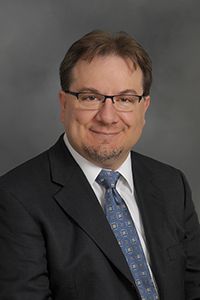Article
Are First-line Treatments for MS in Children Falling Short?
Although recent studies have shown that first-line therapies are safe in children with multiple sclerosis, they aren't always effective.
In a retrospective study, researchers from the National Network of Pediatric MS Centers of Excellence found that one-fifth of children with multiple sclerosis did not respond to first-line disease-modifying therapies. The study, which is published in Archives of Neurology, also reported that Hispanic children with MS were more likely to experience "break-through disease" while receiving first-line therapies than non-Hispanic children.
The review of data covering records of 243 children treated an average of 3.9 years showed that 144 (58%) stayed on their first therapy, primarily interferon beta, 65 (25.2%) were switched to one other therapy, 29 (11.2%) were switched twice, and 20 (7.8%) were switched three times.
While most children switched to other first-line MS drugs, 55 children (21.3%) had to be switched to a variety of second-line drugs, such as broad spectrum chemotherapies and corticosteroids, results showed. These children had shown MS relapses or new brain lesions detected on MRI scans.
Multiple studies have been published over the past decade examining the use of first-line therapies in the pediatric MS population, which has come to be accepted as relatively safe, according to lead author E. Ann Yeh, MD, assistant professor of neurology at the University at Buffalo.
“In practice, however, we were seeing more and more children who continued to have very active disease despite use of first-line therapies. Little information on the use of second-line therapies in children with MS was available prior to the publication of this paper, so we set out to evaluate the use of second-line therapies in treatment-resistant cases of pediatric MS,” said Yeh in a press release.
MS commonly is considered a disease diagnosed in young to middle-aged adults. However, studies have determined that 8,000-10,000 children in the US have MS, which accounts for 2% to 5% of those diagnosed with the disease. As many as 10,000 to 15,000 children are estimated to experience MS symptoms.
"The review clearly shows that a subset of children with pediatric MS has aggressive disease in need of chemotherapy or other second line therapies," said Yeh. “And further, that these second-line therapies may be well tolerated in this group. It also suggests that almost 80 percent of children with MS will probably respond to one of the currently FDA approved first line MS therapies, such as interferons and glatiramer acetate.”
The National Network of Pediatric MS Centers includes Stony Brook University, University of California - San Francisco, University of Alabama-Birmingham, The Mayo Clinic, and Massachusetts General Hospital, in addition to University at Buffalo.





